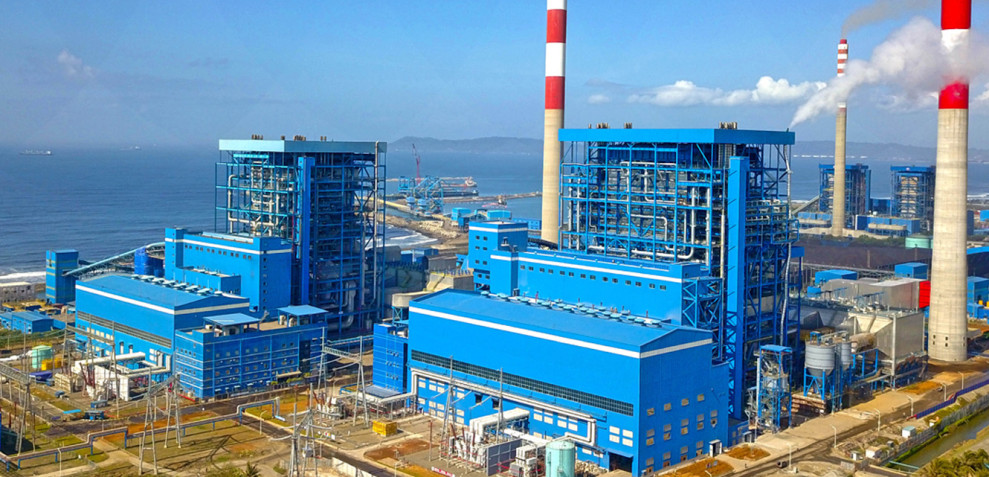Jakarta - PT Sumber Segara Primadaya (S2P) - Cilacap Steam Power Plant (PLTU) continues its efforts to improve community welfare through sustainable environmental conservation. This effort is carried out through its support for the Climate Village Program (ProKlim) in Sawahbera, Karangkandri, Cilacap, Central Java.
The ProKlim program in Sawahbera was initiated in 2024 with the support of PT S2P's CSR program. Subsequently, MSME mentoring and product processing training have been actively running since early 2025.
Zam Zam Nurjaman, Manager of LK3 & CSR at PT S2P, stated that Sawahbera is an area with strong environmental and socio-economic potential.
"The community in this hamlet engages in diverse activities, from agriculture and animal husbandry to micro, small, and medium enterprises (MSMEs), all of which are closely related to natural resource management. These activities are crucial in supporting the implementation of the Climate Village Program," said Zam Zam.
In addition to S2P, support from the local government, especially the Cilacap Regency Environmental Service (DLH), is also an important foundation.
ProKlim in Sawahbera not only encourages the community to protect the environment but also transforms it into a source of economic benefits, starting with waste management based on the 3Rs (reduce, reuse, recycle), creating biopores for land conservation, and strengthening the community's role in the circular economy.
In agriculture, a tuber horticulture farmer group was established as an effort to increase productivity by utilizing organic fertilizer from goat manure and adjusting soil pH for greater fertility.
Livestock farmers are also empowered through capacity building: from strategies to meet livestock nutritional needs with silage and fermented feed, to improved health and housing management.
Developing MSMEs Through Agricultural Products
Agricultural products from the ProKlim Village in Sawahbera are also being developed into value-added products. The community is trained to process sweet potatoes into gembili trail snacks and crispy brownies, and is provided with assistance in business legality, halal certification, and product coaching clinics.
"PT S2P provides several training programs and mentoring for the community in Sawahbera Hamlet. In its implementation, PT S2P collaborates with relevant agencies such as the Environment Agency (DLH), the Department of Trade, Cooperatives, Small and Medium Enterprises (DPUKM), the Department of Agriculture (Dintan), academics from state universities in Cilacap, and the Angkur Institute for Research and Community Service (LP2M)," said Zam Zam.
Six months into the program, tangible impacts are already being felt. These include a cleaner environment, more productive vacant land, and increased income from MSME activities.
Furthermore, MSME turnover in Sawahbera has increased by an average of 20-30% after receiving mentoring from S2P. All of this is geared towards enabling local MSMEs to grow independently and become competitive.
One such business is Ubi Mulyo, a processed cassava product micro, small, and medium enterprise (MSME) owned by husband and wife Maryono and Yuliantun. The Ubi Mulyo MSME is a driving force by involving community groups in production.
One of the beneficiary residents, Yuliantun, expressed her gratitude for this program.
"Previously, we only processed cassava for household consumption. After receiving assistance from PT S2P, we can now produce processed products like crispy brownies and gembili snacks with high sales value. We have additional income for our families, and the women in the hamlet also have productive activities that support their households," she said.
Currently, Ubi Mulyo products are distributed through simple channels, similar to local markets. Furthermore, pre-orders are accepted through simple online channels on social media and WhatsApp.
Now, all residents of Sawahbera have a vital role to play in ProKlim, according to their capacity, from farmers and livestock breeders to micro, small, and medium enterprises (MSMEs), housewives, youth, and children.
By integrating environmental, social, and economic aspects, this program is expected to become a concrete example of a village that is both resilient to climate change and economically empowered.
"They (the residents of Sawahbera) also hope that ProKlim will become a path to improving shared prosperity and building a more resilient village in the face of climate change," he concluded.



